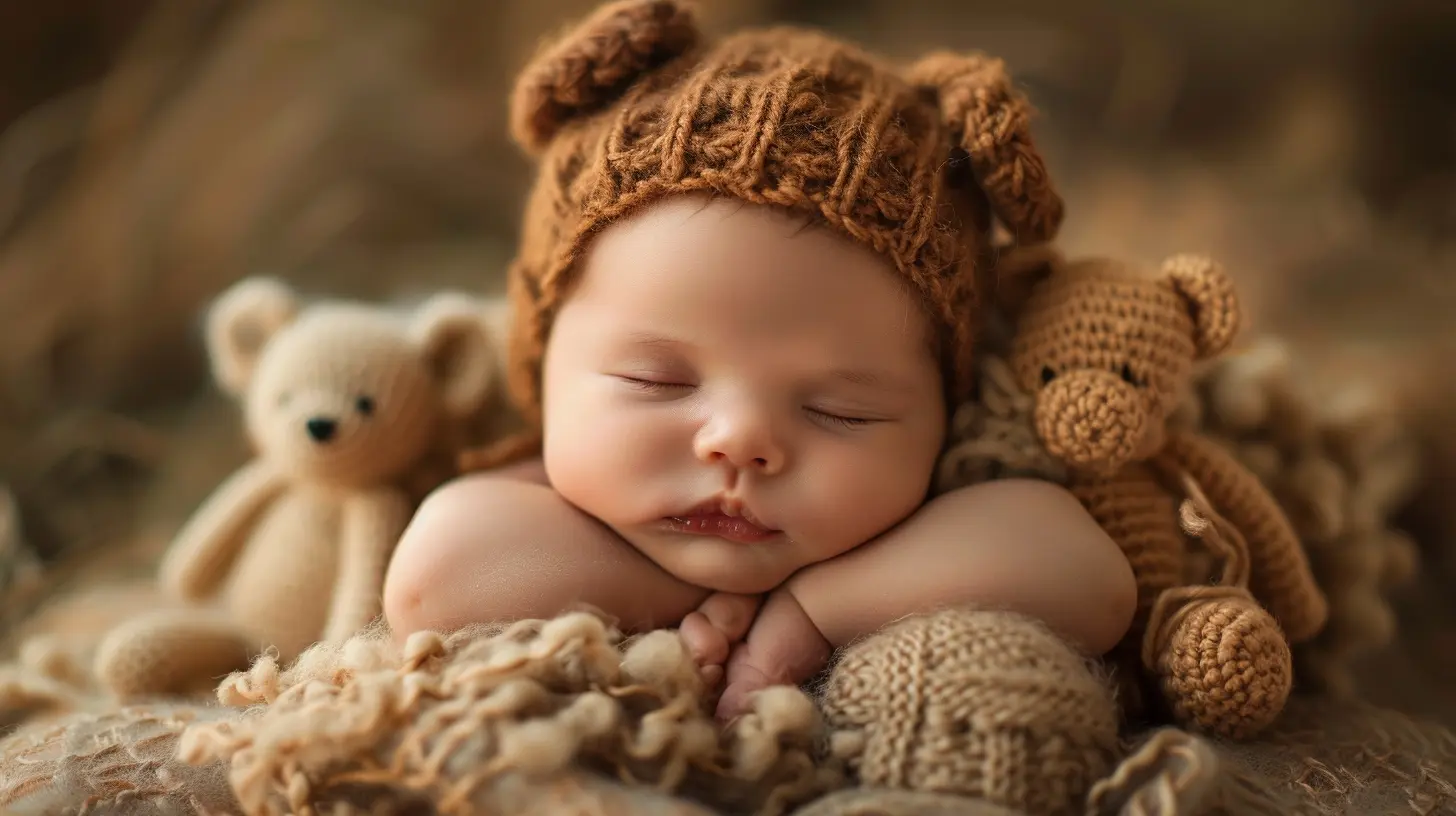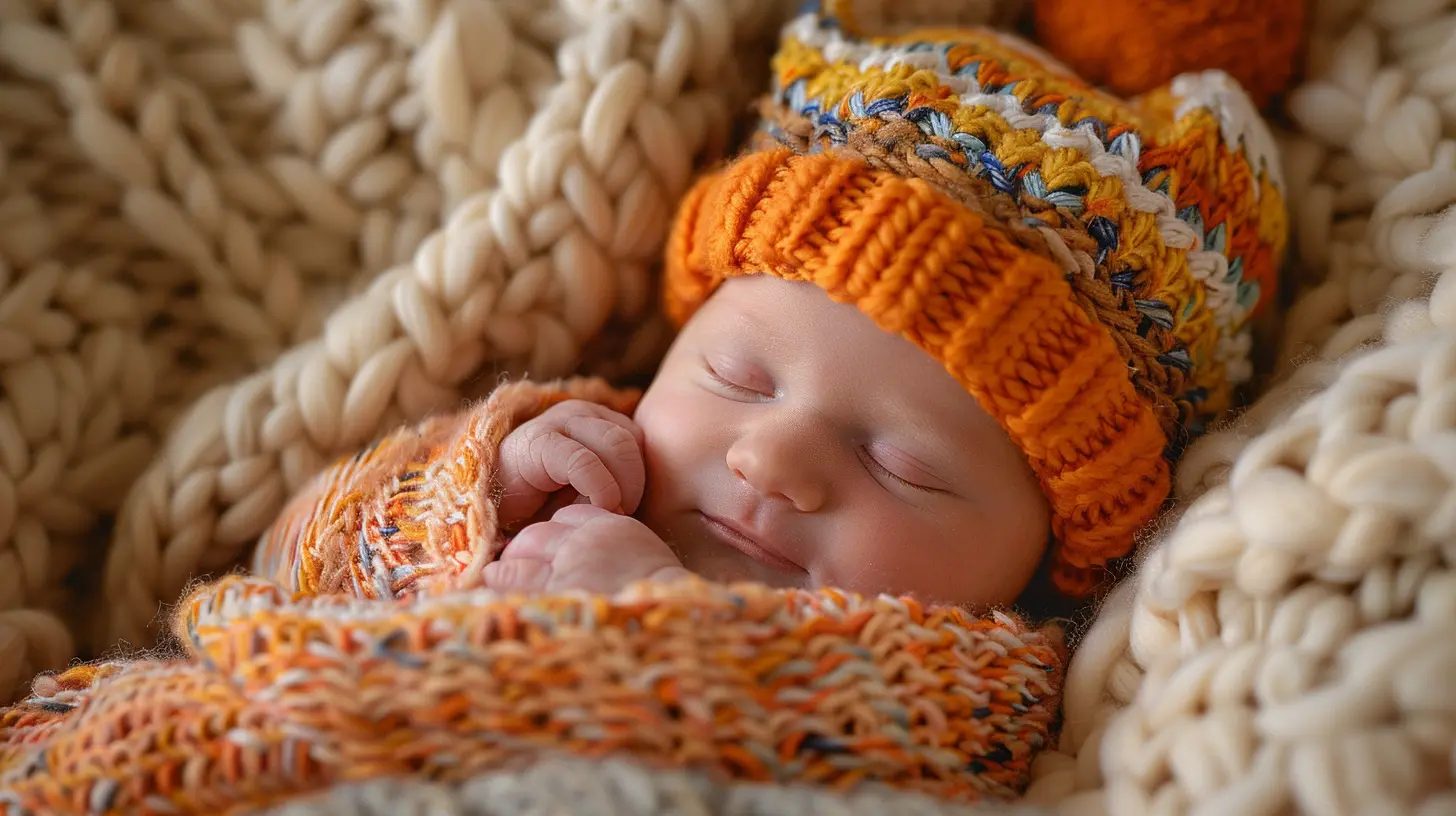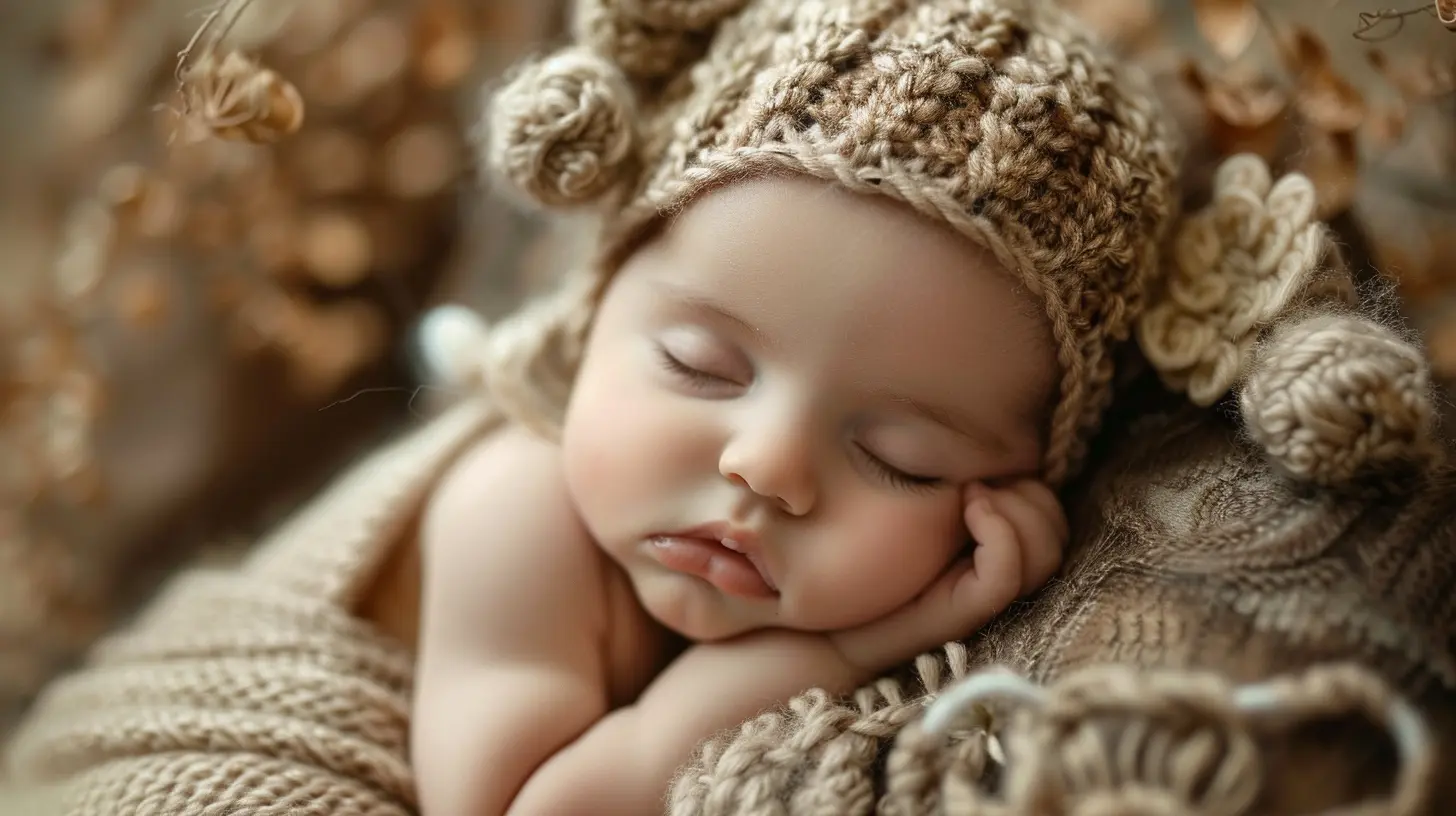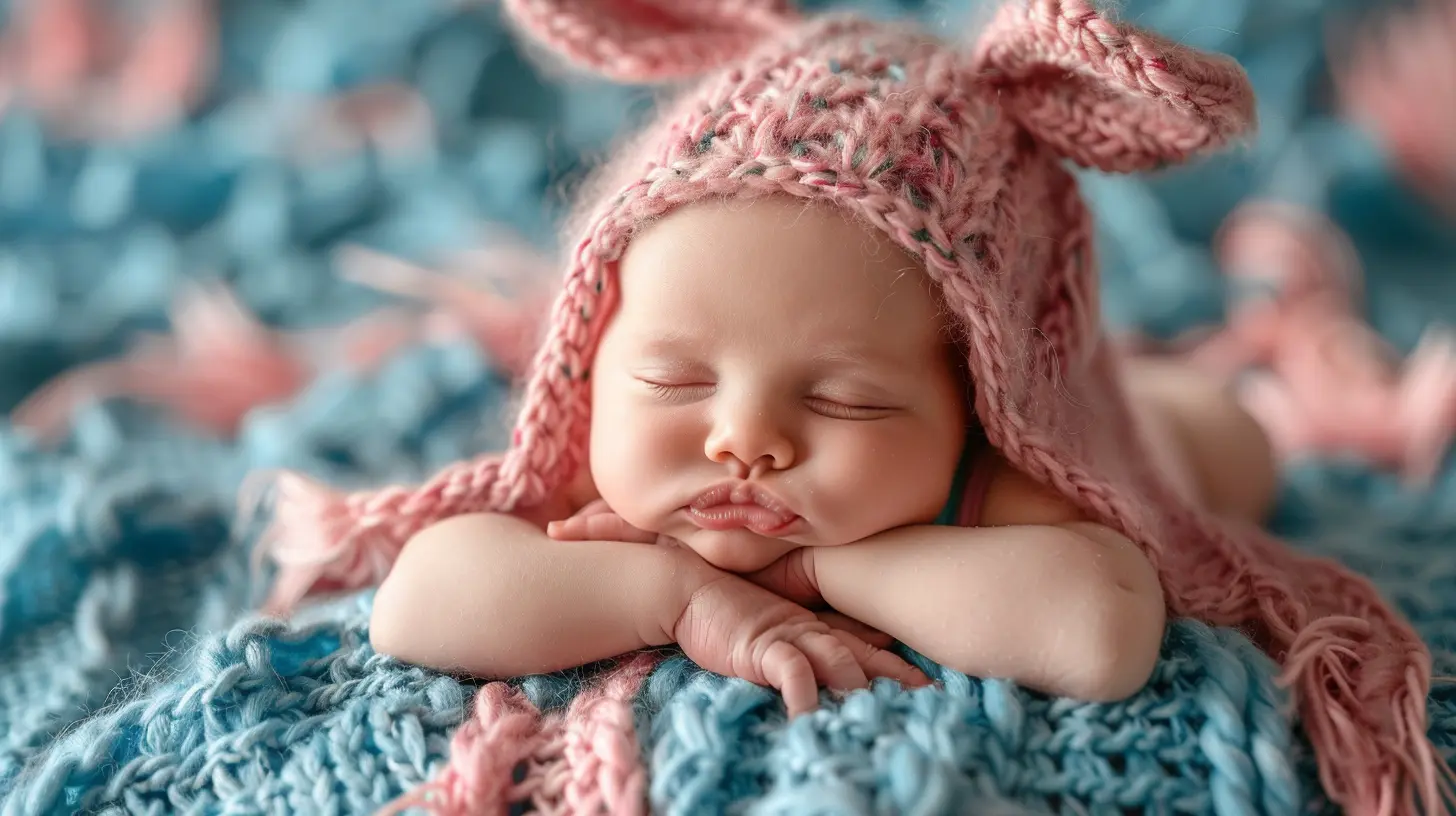How Your Baby’s Sleep Impacts Their Emotional Development
30 July 2025
Let’s face it—when we think about baby sleep, we often focus on how to make it happen. Parents are constantly googling, “How do I get my baby to sleep through the night?” or “Why won’t my baby nap longer than 20 minutes?” But hold on a second. Have you ever stopped to ask yourself, “What’s actually happening in my baby’s brain while they sleep?”
Sleep is more than downtime for your little one. It’s prime time for growth—physically, mentally, and yes, emotionally. The link between your baby’s sleep and their emotional development is strong, backed by science, and honestly kind of mind-blowing.
In this post, we’ll dive deep (but in a totally non-boring way) into how exactly your baby's sleep—or lack thereof—affects their emotional development. We'll break it down, give you practical tips, and help you see sleep through a whole new lens.
Why Sleep Is a Big Deal for Babies
Babies sleep a lot (well, in theory)—we’re talking 14 to 17 hours a day for newborns. And nope, that’s not just to give parents a break (though wouldn’t that be nice?). Their little bodies and brains are hard at work during those snoozing hours.The Brain Goes to Work During Sleep
During sleep, especially during the deepest stages like REM sleep, your baby’s brain is making connections—literally building neural pathways that help regulate emotions, form memories, and shape personality. Think of it like your baby’s brain has construction workers working overtime at night to build the foundation for their emotional world.Emotional Regulation Starts Early
Even infants feel emotions like joy, frustration, sadness, and excitement. But unlike adults, they don’t have the skills yet to manage or express them properly. That’s where sleep comes in. Sleep helps them regulate all those big feelings. Babies who sleep well tend to be more emotionally balanced, less irritable, and more socially engaged.
Sleep and Cortisol: The Stress Connection
Let’s talk about cortisol—the stress hormone. When babies don’t get enough sleep, or their sleep is constantly disrupted, their cortisol levels can rise. High cortisol over time? Not great. It can make babies more anxious, cranky, and even affect how their brain responds to stress in the future.Overtired = Overwhelmed
You know how you get when you’re running on two hours of sleep and someone dares to speak to you before coffee? That’s your baby… times ten. An overtired baby has a harder time calming down because their nervous system is on high alert. This can turn into a vicious cycle: poor sleep leads to more stress, which leads to worse sleep, which leads to even more emotional dysregulation.
The Sleep-Emotion Development Timeline
Let’s break this down by age group so you can better understand the emotional and sleep milestones happening during each stage.Newborns (0–3 Months)
In these first few months, sleep is fragmented and unpredictable, and that’s totally normal. Emotional development is just starting. Your baby learns safety and security mainly through your presence—feeding, rocking, and soothing.Sleep Impact: Even early on, better sleep quality supports forming secure attachments. When you respond to their needs at night, they begin to trust and feel emotionally safe.
Infants (4–12 Months)
This is a huge time for both sleep and emotional development. Separation anxiety may kick in, and your baby begins to recognize people, show preferences, and express complex emotions.Sleep Impact: Consistent sleep patterns help babies manage separation anxiety and reduce fussiness. They begin to learn self-soothing skills—slowly but surely.
Toddlers (1–3 Years)
Tantrums, anyone? Emotional highs and lows really crank up at this stage. They’re starting to test boundaries and explore independence.Sleep Impact: Sleep deprivation can make mood swings worse. A tired toddler is much more likely to melt down over the wrong color of bowl. Good sleep supports impulse control and clearer emotional communication.
Emotional Red Flags From Poor Sleep
So how can you tell if your baby’s emotional development is taking a hit due to poor sleep? Keep an eye out for these signs:- Frequent meltdowns or irritability
- Trouble calming down, even with your help
- Separation anxiety that seems extreme
- Disinterest in play or interaction
- Clinginess that feels out of proportion
Now, let’s be real. Some of this is par for the course with babies and toddlers. But if it’s persistent and you’re noticing a pattern tied to poor sleep, it’s worth digging into.
Emotional Benefits of Good Sleep
Let’s flip the script. What does it look like when your baby is sleeping well?1. Better Mood and Fewer Tantrums
A well-rested baby is a happier baby. They’re more likely to smile, laugh, and explore their world with curiosity rather than fear or frustration.2. Improved Social Skills
Sleep enhances memory and learning. So when your baby gets good rest, they’re more likely to pick up on social cues, mimic behaviors, and form early friendships with caregivers and peers.3. Stronger Bonding with Parents
Babies who sleep better cry less and are easier to soothe, making parenting feel less overwhelming. This strengthens your connection and builds emotional security.4. More Resilience
Your baby’s ability to handle change, deal with frustration, and bounce back from challenges (aka resilience) is directly tied to how rested they are. Sleep helps solidify emotional experiences and builds emotional intelligence over time.How to Support Healthy Sleep for Emotional Growth
Okay, you’re convinced sleep matters. Now what can you actually do to help your baby sleep better—and grow into an emotionally balanced little human?1. Stick to a Consistent Routine
Babies thrive on predictability. A consistent bedtime routine (think bath, book, cuddles, bed) signals their brain that it’s time to wind down.2. Create a Sleep-Friendly Environment
- Keep the room dark and quiet- Use white noise if needed
- Keep temperatures comfortable
- Limit stimulation before bed
3. Pay Attention to Wake Windows
Overtired babies are wired babies. Learn your baby's optimal wake windows (the time they can stay awake without getting overtired) and aim for naps and bedtime accordingly.4. Respond, But Don’t Overstimulate
When your baby wakes at night, responding calmly and quietly helps them feel safe without encouraging full-blown waketime. Keep lights low and minimize interaction.5. Prioritize Naps
Daytime sleep is just as important as nighttime sleep. Skimping on naps often backfires with crankiness and worse night sleep.What If Your Baby Just Won’t Sleep?
Hey, we’ve all been there. Some babies are naturally better sleepers than others. If you’re doing “all the right things” and your baby is still struggling to sleep or seems overly emotional, don’t hesitate to talk to your pediatrician. Sometimes, underlying issues like reflux, allergies, or even sensory processing challenges can affect sleep and mood.Remember: asking for help doesn’t mean you’re failing. It means you’re tuned in. And that’s how emotionally secure kids are raised.
Final Thoughts: Better Sleep, Better Feelings
Your baby’s sleep isn’t just about giving you a break (although let’s be honest, that matters too). It’s about giving your baby the internal tools they need to thrive. Every restful nap and every consistent bedtime is shaping your child’s ability to cope, connect, and feel secure in the world around them.So yeah, sleep training can feel like a battlefield. There are nights when everything falls apart and mornings when it feels like everyone woke up on the wrong side of the crib. But keep going. Because with every sweet, sleepy sigh, your baby isn’t just resting—they’re growing emotionally. And that might just be the most important part of this entire parenting journey.
all images in this post were generated using AI tools
Category:
Baby SleepAuthor:

Maya Underwood
Discussion
rate this article
1 comments
Icarus McClendon
This article effectively highlights the crucial link between sleep and emotional development, but further exploration of practical strategies for improving sleep could enhance its applicability for parents.
August 14, 2025 at 4:30 PM

Maya Underwood
Thank you for your insightful feedback! I appreciate your suggestion and will consider including practical sleep strategies in future revisions.


